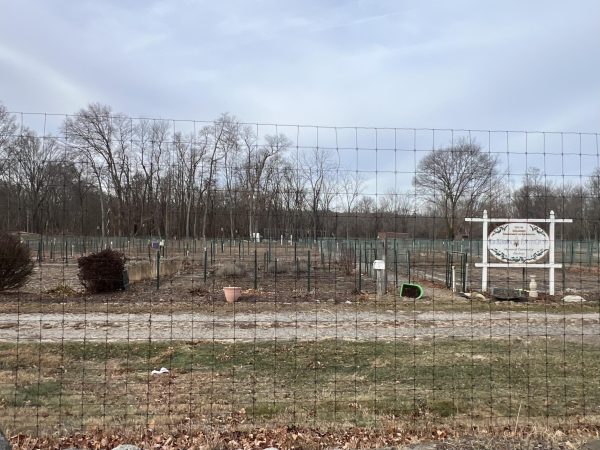Currently, Earth is 2.45 degrees Fahrenheit warmer than the average pre-industrial temperature; according to NASA. Since industrialization, using fossil fuels, pollution, and overconsumption have led to increased global temperatures.
AP Environmental Science Teacher, Melissa Smith states, “I have solar panels on my roof, I recycle materials, compost, donate my children’s clothes that don’t fit, try to eat lots of plant-based foods, use some organic products, and try to minimize the use of plastic packaging by choosing certain products.”
Though a sustainable life can be hard to achieve, as a community, it is important to take all actions necessary to ensure a healthy planet for the future.
A few simple changes can be made to be as eco-conscious as possible.
- Growing Produce: Growing produce at home decreases transportation emissions and water runoff. Transportation emissions and gas use contribute to the increasing global temperatures. Water runoff causes pollution in crucial ecosystems. The Benson-Crump Memorial Community Garden in Eisenhower Park is a great option to achieve this goal. At $100, it provides an opportunity to grow food for oneself, shelters, charities, and others in need.

Growing Grounds: During the growing season, this garden is used to develop various types of produce to help others and for personal use. December 15, 2024. Photo courtesy: Laney Chan.
- Recycling in Every Way: It is important to recycle plastics and appear in order to reduce pollution. However, one way many do not consider is by recycling items and buying recycled items, it decreases the amount of resources being used to create and dispose of those items. Examples of this can be buying a used car or shopping at second hand stores for clothes, books, etc.
- Eating Less Meat: Meat production requires a large amount of resources. Farming the animals requires a large amount of land and water. Resources can be preserved by having a vegetable-heavy diet or not eating meat at all. Grains and vegetables require fewer resources. According to the Water Footprint Calculator, one pound of beef needs 1,799 gallons of water whereas soybeans require 206 gallons and corn requires 108 gallons. Eating more vegetables than meat preserves the already minimal resources.
- Conserving Water and Electricity: Water is a limited resource. Clean water is a privilege and needs to be used in moderation. Ways to do this include ensuring faucets are turned off, not leaving running water, and doing fewer loads in the washing machine or dishwasher. Electricity requires limited resources to function. The gases used come from fossil fuels. Ways to reserve electricity are investing in solar panels, turning off lights when not in use, decreasing appliance use, and being sure to unplug things when done using them.
Another way to reduce carbon footprints is by investing in an electric car. This decreases the amount of gas used.
Student Shea Pangu states, “This past year my family has become a lot more eco friendly by purchasing an electric car, this way we no longer use gas or release carbon dioxide into the environment.”
- Reduce Waste: Reducing waste comes in many forms. It consists of clothing, food, personal products, and more. Consumerism is currently a major problem in the world. Individuals buy more things than they need because of short trends. When these periods end, the items are disposed of. Getting rid of waste requires energy. As more unnecessary waste people produce, the disposal process increases. To preserve resources, individuals should be conscious of their purchases, not impulsive buying. Additionally, food waste produces greenhouse gases that contribute to climate change. Using food scraps as compost allows the food to serve a dual purpose.
Foran teacher Brenden Burgess says, “I work on a farm in the summer and one thing I do that anyone can do is compost. Coffee grounds, banana peels, apple cores, orange rinds, and any fruits or vegetables that end up in garbage cans go into the compost.”
Compost can be put into growing produce, allowing for items to be used in multiple ways, coming in full circle.
By taking part in these simple adjustments, the community can be more efficient and sustainable, promoting a healthier environment.








